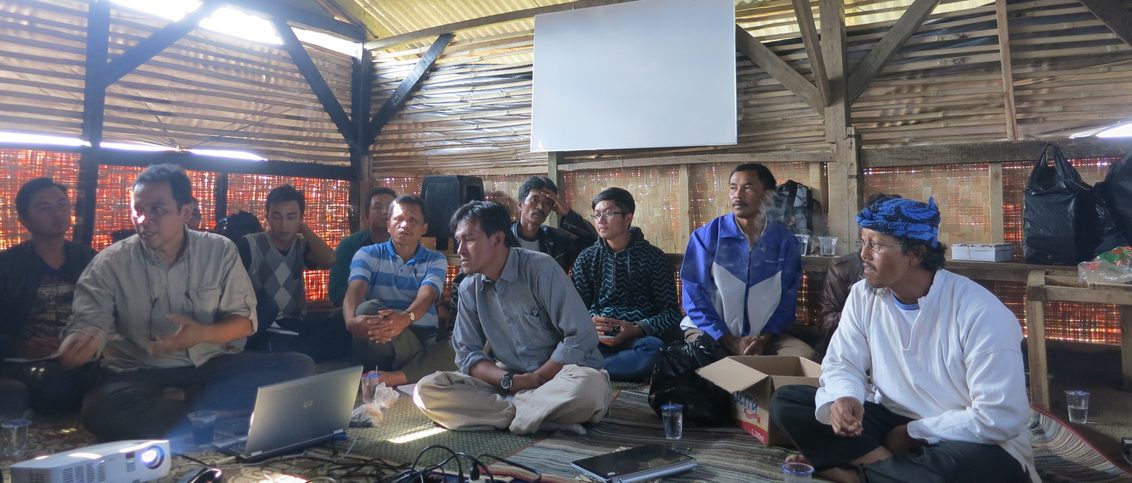
What is agricultural extension?
Agricultural extension is another name for agricultural advisory services.
In practical terms, extension means giving farmers – for us, smallholders in developing countries – knowledge of agronomic techniques and skills to improve their productivity, food security and livelihoods.
This has two important components:
- dissemination of practical information, including on improved seeds, soil quality, tools, water management, crop protection, agricultural practices and livestock, and
- application of this knowledge on the farm.
Here's news from Kenya of our work to provide extension services in minority languages via radio.
Read a guest symposium report about radio and other extension topics (April 2019)
As well as contributing to rural development, extension is an essential part of agricultural research and development. Research institutions focus on the technical aspects of generating useful technologies. Extension focuses on the acceptance and adoption of those technologies by farmers. The two areas must work in partnership.
Who provides agricultural extension services?
There are three main sources of agricultural extension.
- The public sector
Ministries and departments of agriculture, and agricultural research centres.
- The private non-profit sector
Local and international non-governmental organizations (NGOs), foundations, community boards and associations; bilateral and multilateral aid projects, and other non-commercial associations.
- The private for-profit sector
Commercial companies (such as input manufacturers and distributors); commercial farmers or farmer group-operated enterprises where farmers are both users and providers of agricultural information; agro-marketing and processing firms; trade associations; and private consulting and media companies.
Agricultural extension in the developing world
Many countries with advanced agricultural sectors, such as the United States, Canada, Australia, and Denmark, enjoy strong extension services. In the developing world, however, agricultural extension has not always met farmers’ needs.
The World Bank-devised ‘training and visit’ system played an important role in India’s Green Revolution from the late 1970s but also failed in some important areas. It was not suited to diversified farming systems in rainfed areas. It also struggled to meet evolving challenges such as improving sustainability, promoting diversification, and connecting farmers to markets.
In Africa, a lack of research focus on their concerns has contributed to poor take-up of technology amongst smallholder farmers. Some research facilities in Africa pay scant attention to smallholder labor constraints, the risks attached to innovations, and input availability. As a result, poor yields and lack of access to markets mean poverty persists in the sector, with far-reaching consequences. These include the young leaving for the cities, straining inadequate urban infrastructure while also contributing to food insecurity.
Our Demand-Led Breeding initiative aims to help improve this situation. But good agricultural extension remains vital.
New approaches to agricultural extension
Addressing new and growing challenges in agricultural markets, technology and sustainability demand new thinking. Extension now needs to focus on
- Participatory approaches to shape demand-driven services
- Multiple providers of extension services, and
- Strategies to develop agricultural innovation systems
The public sector has been the traditional source of research and extension services in the developing world but cannot do it alone. To achieve development and to feed growing populations, smallholders must have a voice in shaping the services they need. In addition, barriers to company and NGO participation in extension must be removed, and innovative public-private partnerships formed.
Learn more
Find out more about our work in extension and other agriservices.
Yuan Zhou is our Foundation's Head of Research & Policy Analysis. She is also co-editor of "Knowledge Driven Development; Private Extension and Global Lessons". Here is a synopsis.
Together with Suresh Babu of IFPRI, Yuan and the many other contributors draw on real-life examples. These illustrate the role and capacity of private companies in knowledge-sharing and intensification through agricultural extension.
For further information and book orders, use any of these links:
https://store.elsevier.com/Knowledge-Driven-Development/isbn-9780128022313/
https://www.sciencedirect.com/science/book/9780128022313
https://www.amazon.com/Knowledge-Driven-Development-Private-Extension/dp/0128022310
